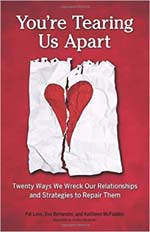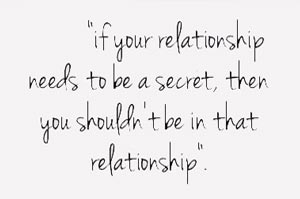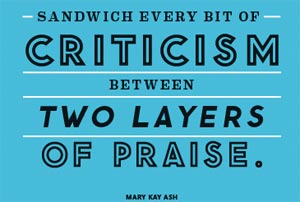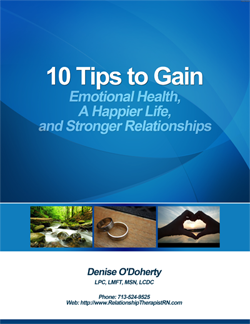Communication and negotiation are two main factors in a good relationship. This looks like two adults bringing their best to each other with mutual respect and consideration. No one wants to be controlled or bullied in a relationship. This article by Pat Love from her book “You’re Tearing Us Apart” makes us understand what is behind a “controller” and what to do about it.
“Your Controlling Behavior Is Tearing Us Apart”
“I feel like I’m living in a vice. I can’t move right or left, forward or backward, without you getting upset or somehow correcting me. I’ve avoided this subject for a long time because I don’t want your anger, your criticism, or your silent treatment, but I’m worn out and worried that it’s getting worse.The Purpose Behind Controlling Behavior
The most common reason why we try to control another person’s behavior is to manage our own anxiety or insecurity. We feel safer and less vulnerable when everything happens as expected. This fact easily goes unnoticed because it’s largely unconscious. What others see as controlling is often seen as doing the right thing to the person in control, or at least doing it in a better way. Those blamed for being controlling are often confused by this accusation. They see what they believe to be the best course of action and are incredulous when others don’t see it the same way. Motivated by the desire to help, partners who are controlling come on strong with suggestions and work hard to gain compliance. Controlling behavior also can be compensation for a time or situation when the partner had no control such as growing up, a stressful job, or a former relationship. Living without personal control can increase the motivation to seize control whenever possible.
The most severe forms of control are motivated by emotional dysregulation, which is the inability to manage our own feelings. In an attempt to avoid the fear of abandonment or the shame of inadequacy, the controlling partner resorts to extreme emotions such as anger, rage, threats, and even emotional or physical abuse.
The primary difference in modern twenty-first century couples and those in the past is the level of equality, equity, freedom and autonomy. Relationships thrive when each individual has the liberty to develop and grow as a person and a partner. This evolving process generates energy that keeps both partners interested and excited about a future together.
When one partner tries to control or limit the other’s choices, excitement is replaced by resentment, which is the number one cause of growing apart, and growing apart is cited as the most common reason for divorce and separation.
Once resentment enters a relationship, excitement fades, passion wanes, and anger is never far behind. Good feelings and effective communication go out the window, while criticism, defensiveness, and withdrawal seep in. When negative exchanges begin to outweigh the positives, the relationship is in serious trouble of tearing apart.
Controlling behavior also can be compensation for a time or situation when the partner had no control such as growing up, a stressful job, or a former relationship. Living without personal control can increase the motivation to seize control whenever possible.
The most severe forms of control are motivated by emotional dysregulation, which is the inability to manage our own feelings. In an attempt to avoid the fear of abandonment or the shame of inadequacy, the controlling partner resorts to extreme emotions such as anger, rage, threats, and even emotional or physical abuse.
The primary difference in modern twenty-first century couples and those in the past is the level of equality, equity, freedom and autonomy. Relationships thrive when each individual has the liberty to develop and grow as a person and a partner. This evolving process generates energy that keeps both partners interested and excited about a future together.
When one partner tries to control or limit the other’s choices, excitement is replaced by resentment, which is the number one cause of growing apart, and growing apart is cited as the most common reason for divorce and separation.
Once resentment enters a relationship, excitement fades, passion wanes, and anger is never far behind. Good feelings and effective communication go out the window, while criticism, defensiveness, and withdrawal seep in. When negative exchanges begin to outweigh the positives, the relationship is in serious trouble of tearing apart.
Transforming Controlling Behavior
Sometimes controlling behavior is simply a habit. The best way to break a habit is to form a new one. Developing a “no advice” policy might be just the right approach to replace the old pattern. As soon as you catch yourself trying to control your partner, stop and apologize: ”There, I did it again, I’m sorry”. It’s also a good idea to tell them what you are sorry for so they know you “got it”.
Apology goes a long way if you are sincere.
Instead of directing, or trying to influence your partner to what you want, simply say “oh” (to de-escalate you and show a noncommittal neutral stance) or “tell me more about how you think about that”. You might discover a great deal of wisdom in your partner’s perspective- especially if you’re more willing to be loving than to be right.
Most controlling behavior is fueled by anxiety or fear: therefore, you must learn to manage those feeling within yourself instead of trying to manage your partner’s behavior. Emotional regulation gives you control of what happens in your mind and your own behavior. Trying to control your partner’s life will wear you out and tear down your relationships. If the old pattern of controlling starts up, call a time-out. You can’t have an argument over control when one person refuses to participate.
If you’re the partner feeling controlled, then it’s your responsibility to speak up! Silence enables the behavior to continue. You might be more aware of the controlling behavior that your partner. Work together to agree upon a kind way to signal when the pattern re-emerges. Develop a redirect strategy to replace the old habits For example: when I life my hand in the stop position, I’d like you to be quiet and let me finish what I am doing.”
If you do not feel safe or competent to talk with your partner about the issue of control, take this as a sign to seek professional help.
As soon as you catch yourself trying to control your partner, stop and apologize: ”There, I did it again, I’m sorry”. It’s also a good idea to tell them what you are sorry for so they know you “got it”.
Apology goes a long way if you are sincere.
Instead of directing, or trying to influence your partner to what you want, simply say “oh” (to de-escalate you and show a noncommittal neutral stance) or “tell me more about how you think about that”. You might discover a great deal of wisdom in your partner’s perspective- especially if you’re more willing to be loving than to be right.
Most controlling behavior is fueled by anxiety or fear: therefore, you must learn to manage those feeling within yourself instead of trying to manage your partner’s behavior. Emotional regulation gives you control of what happens in your mind and your own behavior. Trying to control your partner’s life will wear you out and tear down your relationships. If the old pattern of controlling starts up, call a time-out. You can’t have an argument over control when one person refuses to participate.
If you’re the partner feeling controlled, then it’s your responsibility to speak up! Silence enables the behavior to continue. You might be more aware of the controlling behavior that your partner. Work together to agree upon a kind way to signal when the pattern re-emerges. Develop a redirect strategy to replace the old habits For example: when I life my hand in the stop position, I’d like you to be quiet and let me finish what I am doing.”
If you do not feel safe or competent to talk with your partner about the issue of control, take this as a sign to seek professional help.

 They prevent us from being in harmony with the world. Resentments are hardened chunks of anger. They loosen up and dissolve with forgiveness and letting go.
Letting go of resentments does not mean we allow the other person to do anything to us that he or she wants. It means we accept what happened in the past, and we set boundaries for the future. We can let go of resentments and still have boundaries.
Try to see the good in the person, or the good that ultimately evolved from whatever incident you feel resentful about. Try to see your part. Get clarity on what your boundaries are and be willing to speak up and state your boundaries with others. (teach people how to treat you). Then put the incident to rest.
They prevent us from being in harmony with the world. Resentments are hardened chunks of anger. They loosen up and dissolve with forgiveness and letting go.
Letting go of resentments does not mean we allow the other person to do anything to us that he or she wants. It means we accept what happened in the past, and we set boundaries for the future. We can let go of resentments and still have boundaries.
Try to see the good in the person, or the good that ultimately evolved from whatever incident you feel resentful about. Try to see your part. Get clarity on what your boundaries are and be willing to speak up and state your boundaries with others. (teach people how to treat you). Then put the incident to rest. reached out to me for sex and I turned my back, pushed you away, or made lame excuses to avoid any romantic or sexual time together? How about if I went day after day ignoring your sexual needs?
It’s hard for me to feel like helping you or supporting you when you’re so insensitive. Problem is, it takes two of us to be sexual but only one person (you!) to say no. You have the power to stop our sex life and you have used that power at the risk of our happiness.
You must not feel what I feel when we go without sex. I can’t help but believe if you knew how physically, emotionally, and psychologically uncomfortable it is for me, that you would feel guilty about your resistance. Or maybe you just don’t care; maybe you don’t care about sex and don’t care about me. Whatever the reason, I’m not happy about it and you should understand why I’m upset.”
reached out to me for sex and I turned my back, pushed you away, or made lame excuses to avoid any romantic or sexual time together? How about if I went day after day ignoring your sexual needs?
It’s hard for me to feel like helping you or supporting you when you’re so insensitive. Problem is, it takes two of us to be sexual but only one person (you!) to say no. You have the power to stop our sex life and you have used that power at the risk of our happiness.
You must not feel what I feel when we go without sex. I can’t help but believe if you knew how physically, emotionally, and psychologically uncomfortable it is for me, that you would feel guilty about your resistance. Or maybe you just don’t care; maybe you don’t care about sex and don’t care about me. Whatever the reason, I’m not happy about it and you should understand why I’m upset.”
 them anymore.
A significant number of couples simply don’t make time for sex. The lead busy lives with little relaxation or quiet moments together.
Some partners simply aren’t interested in sex and feel justified in ignoring their partner’s needs- although this is far rarer than you might believe. Given the right situation almost everyone enjoys sex.
If the partner who initiates sex more often exhibits offensive behavior, such as acting in an angry or defensive manner, this may serve as a turn-off and justification for the other partner to withhold sexual contact. Without effective communication skills a cold war may ensue.
Easily, the most common reason partners withhold sex is lack of information related to healthy, fun, sexual practices. They don’t know what turns them on and therefore cannot provide their partners with constructive information that would lead to mutual satisfaction. They may never have come close to experiencing their own sexual potential.
them anymore.
A significant number of couples simply don’t make time for sex. The lead busy lives with little relaxation or quiet moments together.
Some partners simply aren’t interested in sex and feel justified in ignoring their partner’s needs- although this is far rarer than you might believe. Given the right situation almost everyone enjoys sex.
If the partner who initiates sex more often exhibits offensive behavior, such as acting in an angry or defensive manner, this may serve as a turn-off and justification for the other partner to withhold sexual contact. Without effective communication skills a cold war may ensue.
Easily, the most common reason partners withhold sex is lack of information related to healthy, fun, sexual practices. They don’t know what turns them on and therefore cannot provide their partners with constructive information that would lead to mutual satisfaction. They may never have come close to experiencing their own sexual potential.
 commitment to be available as a sexual/ sensual/ intimate partner whenever either of you has the desire.
There are many, many ways to be sexual. From the quickie to the weekend sex fest, couples run the gamut when it comes to sensual pleasure. Get in the habit of expanding your sexual repertoire in terms of time, attention, and technique.
If the issues between the two of you are more complicated than just getting off track, then you might need to address the unresolved issues that are contaminating your sex life:
commitment to be available as a sexual/ sensual/ intimate partner whenever either of you has the desire.
There are many, many ways to be sexual. From the quickie to the weekend sex fest, couples run the gamut when it comes to sensual pleasure. Get in the habit of expanding your sexual repertoire in terms of time, attention, and technique.
If the issues between the two of you are more complicated than just getting off track, then you might need to address the unresolved issues that are contaminating your sex life:
 stranger mean more to you than your own family? You have ruined all our lives just to follow your feelings and please yourself.
So is this about sex? Are you not attracted to me anymore? Did you ever find me attractive? Am I such a miserable failure? It feels like my heart is being torn out of my body. Why are you doing this to me?
I am angry but I am also deeply sad. I’m grieving the loss of a dream. I guess it was a dream because I thought we had a strong loving relationship while all along you were giving your love and attention secretly to someone else.
How could you look at me and act like nothing was happening while knowing you were lying to my face? Some part of me feels like a big fool- for loving you, believing you, and trusting you. Well, you’ve broken that trust, and I don’t know if I can ever get that back again.”
stranger mean more to you than your own family? You have ruined all our lives just to follow your feelings and please yourself.
So is this about sex? Are you not attracted to me anymore? Did you ever find me attractive? Am I such a miserable failure? It feels like my heart is being torn out of my body. Why are you doing this to me?
I am angry but I am also deeply sad. I’m grieving the loss of a dream. I guess it was a dream because I thought we had a strong loving relationship while all along you were giving your love and attention secretly to someone else.
How could you look at me and act like nothing was happening while knowing you were lying to my face? Some part of me feels like a big fool- for loving you, believing you, and trusting you. Well, you’ve broken that trust, and I don’t know if I can ever get that back again.”
 Most people, however, don’t decide- they slide into an affair. Conscious thought doesn’t enter into the picture. An innocent acquaintance gradually becomes more intimate until it’s the primary source of pleasure. An innocent acquaintance gradually becomes more intimate until it’s the primary source of pleasure. The affair begins with two people sharing information or an activity; they bond around personal contact and mutual experiences. With little or no conscious thought, they cross the line into infatuation. Once the affair relationship start to provide a sensual or sexual high, then it’s “game over.” You are now under the influence of infatuation, one of the strongest forces found in nature. Infatuation sets up an insatiable craving for more contact that’s practically impossible to resist.
It’s easy to be judgmental about affairs. But being attracted to another person is normal. For some, monogamy is compatible and comfortable. For others, monogamy takes a more conscious effort.
An important clarification regarding affairs- contrary to popular belief- is that affairs can and do happen in good relationships. You can be in a happily committed relationship and still meet someone at work with whom you have chemistry. If you follow the chemistry, an affair will follow.
Most people, however, don’t decide- they slide into an affair. Conscious thought doesn’t enter into the picture. An innocent acquaintance gradually becomes more intimate until it’s the primary source of pleasure. An innocent acquaintance gradually becomes more intimate until it’s the primary source of pleasure. The affair begins with two people sharing information or an activity; they bond around personal contact and mutual experiences. With little or no conscious thought, they cross the line into infatuation. Once the affair relationship start to provide a sensual or sexual high, then it’s “game over.” You are now under the influence of infatuation, one of the strongest forces found in nature. Infatuation sets up an insatiable craving for more contact that’s practically impossible to resist.
It’s easy to be judgmental about affairs. But being attracted to another person is normal. For some, monogamy is compatible and comfortable. For others, monogamy takes a more conscious effort.
An important clarification regarding affairs- contrary to popular belief- is that affairs can and do happen in good relationships. You can be in a happily committed relationship and still meet someone at work with whom you have chemistry. If you follow the chemistry, an affair will follow.
 Affairs change your image of your partner. Whether you had the affair or you’re reeling from your partner’s affair, the experience will show you another side of one another’s personality. When we are in the throes of fear or shame, none of us function at our best.
Affairs are traumatic. Trauma is any real or perceived threat to survival. When you are in a committed love relationship your partner becomes an attachment figure. This means, your partner’s attention determines your feeling of security and survival. So if your partner chooses someone else over you, it feels like you are going to die. Affairs evoke fear of abandonment. Even though affairs most often are the result of your partner’s unilateral, personal decision, it’s hard not to take it as a personal affront. When you’re reeling in the hurt it’s hard to reach the love that once connected you.
The unfaithful partner can feel shame because:
Affairs change your image of your partner. Whether you had the affair or you’re reeling from your partner’s affair, the experience will show you another side of one another’s personality. When we are in the throes of fear or shame, none of us function at our best.
Affairs are traumatic. Trauma is any real or perceived threat to survival. When you are in a committed love relationship your partner becomes an attachment figure. This means, your partner’s attention determines your feeling of security and survival. So if your partner chooses someone else over you, it feels like you are going to die. Affairs evoke fear of abandonment. Even though affairs most often are the result of your partner’s unilateral, personal decision, it’s hard not to take it as a personal affront. When you’re reeling in the hurt it’s hard to reach the love that once connected you.
The unfaithful partner can feel shame because:

 These can also be addressed in psychotherapy with a professional who is familiar with guiding you through to build trust, safety and a positive connection.
These can also be addressed in psychotherapy with a professional who is familiar with guiding you through to build trust, safety and a positive connection.
 As strange as it sounds, criticism has a positive purpose: it’s an attempt to evoke a change in the relationship. Complaint, comparison, and blame are ways of letting you know something needs to shift: but even though it is aimed toward a solution, criticism often becomes the problem.
Partners who criticize aren’t fully aware of the impact because, typically, they are trying to communicate a desire for change that they feel will improve the relationship. Although their intentions are positive, they don’t realize the result is negative. “You don’t listen to me,” may mean, “I want you to show interest in me by remembering our conversations because that makes me feel close to you and loved by you.” Or, “All you ever think about is sex,” may mean, “I want to have sex with you and it takes an emotional connection to ignite my desire.”
One common point of confusion regarding criticism is how men and women differ in their responses to it. Neither likes it, but if a woman complains to another woman, “The kids are driving me crazy!” most women will move in closer to comfort or console. “I am so sorry. Tell me what’s going on.” But if a woman complains to a man, “The kids are driving me crazy!” He knows sooner or later it’s going to be his fault. Most men are fixers, and so a woman’s complaint feels like his failure for not fixing the problem or preventing it from happening. Interestingly, when a man criticizes another man, it’s often in the form of banter or sparing: it even can be a way of helping him improve, for instance, “If you get a better haircut you might get a date!” These same principles work in same sex relationships also.
Behind every criticism is a desire, but when a desire in delivered and received in a negative manner, the results are personal and hurtful.
Most people defend against criticism. Some people def
As strange as it sounds, criticism has a positive purpose: it’s an attempt to evoke a change in the relationship. Complaint, comparison, and blame are ways of letting you know something needs to shift: but even though it is aimed toward a solution, criticism often becomes the problem.
Partners who criticize aren’t fully aware of the impact because, typically, they are trying to communicate a desire for change that they feel will improve the relationship. Although their intentions are positive, they don’t realize the result is negative. “You don’t listen to me,” may mean, “I want you to show interest in me by remembering our conversations because that makes me feel close to you and loved by you.” Or, “All you ever think about is sex,” may mean, “I want to have sex with you and it takes an emotional connection to ignite my desire.”
One common point of confusion regarding criticism is how men and women differ in their responses to it. Neither likes it, but if a woman complains to another woman, “The kids are driving me crazy!” most women will move in closer to comfort or console. “I am so sorry. Tell me what’s going on.” But if a woman complains to a man, “The kids are driving me crazy!” He knows sooner or later it’s going to be his fault. Most men are fixers, and so a woman’s complaint feels like his failure for not fixing the problem or preventing it from happening. Interestingly, when a man criticizes another man, it’s often in the form of banter or sparing: it even can be a way of helping him improve, for instance, “If you get a better haircut you might get a date!” These same principles work in same sex relationships also.
Behind every criticism is a desire, but when a desire in delivered and received in a negative manner, the results are personal and hurtful.
Most people defend against criticism. Some people def end by trying harder and apologizing. Others defend by withdrawing, getting angry, or loosing hope. When criticized, your psyche switches into a defensive mode, and while this protection is in place, connection with your partner is broken. With repeated criticism you’ll eventually associate your partner with pain, not pleasure, leaving you no choice but to tune out and disconnect. If and when this happens, the distance between you will widen at an alarming rate.
Relationship connection is critical to our well-being- not to mention our survival. One of our greatest human strengths is attachment. We need to be understood, cared about, and, from time-to-time, have another individual experience a state of mind similar to our own.
Criticism comes in all forms: cutting words: sounds, such as a heavy sigh: and bodily expressions like piercing eyes, wrinkled forehead, or threatening body posture.
Continual criticism ultimately can lead to contempt, the single greatest predictor of divorce and separation. Contempt means, “I’ve made my mind about you and it’s not good.” Contempt keeps you from seeing what your partner does right while only seeing what your partner does wrong.
Criticism is stressful for both partners and keeps you both on edge. As love as defenses are up, connection is down. Couples who are disconnected risk growing apart, which is the most commonly cited cause of divorce and separation.
end by trying harder and apologizing. Others defend by withdrawing, getting angry, or loosing hope. When criticized, your psyche switches into a defensive mode, and while this protection is in place, connection with your partner is broken. With repeated criticism you’ll eventually associate your partner with pain, not pleasure, leaving you no choice but to tune out and disconnect. If and when this happens, the distance between you will widen at an alarming rate.
Relationship connection is critical to our well-being- not to mention our survival. One of our greatest human strengths is attachment. We need to be understood, cared about, and, from time-to-time, have another individual experience a state of mind similar to our own.
Criticism comes in all forms: cutting words: sounds, such as a heavy sigh: and bodily expressions like piercing eyes, wrinkled forehead, or threatening body posture.
Continual criticism ultimately can lead to contempt, the single greatest predictor of divorce and separation. Contempt means, “I’ve made my mind about you and it’s not good.” Contempt keeps you from seeing what your partner does right while only seeing what your partner does wrong.
Criticism is stressful for both partners and keeps you both on edge. As love as defenses are up, connection is down. Couples who are disconnected risk growing apart, which is the most commonly cited cause of divorce and separation.
 You can transform criticism by stating the underlying desire. Be clever, not critical. You can eliminate the need for criticism altogether by catching your partner in the act of doing something right – even a seemingly mundane thing – and acknowledging it.
“It really helped when you put gas in my car for me this weekend.”
“Thank you for a wonderful evening and just staying home relaxing with me.”
“It feels so good when you smile at me and tell me you love me.”
“Thank you for remembering I had that review at work today because your note of encouragement lifted my spirits.”
Your partner is very interested in your desires but cannot hear you when they come in the form of criticism. Stay connected by sending your positive message in a positive package.
Don’t forget you can catch a mood, so try infecting your partner with positivity. The only person you can change is yourself, and you alone can promote positive change and help keep the path clear for connection by transforming criticism into desire and appreciation.
You can transform criticism by stating the underlying desire. Be clever, not critical. You can eliminate the need for criticism altogether by catching your partner in the act of doing something right – even a seemingly mundane thing – and acknowledging it.
“It really helped when you put gas in my car for me this weekend.”
“Thank you for a wonderful evening and just staying home relaxing with me.”
“It feels so good when you smile at me and tell me you love me.”
“Thank you for remembering I had that review at work today because your note of encouragement lifted my spirits.”
Your partner is very interested in your desires but cannot hear you when they come in the form of criticism. Stay connected by sending your positive message in a positive package.
Don’t forget you can catch a mood, so try infecting your partner with positivity. The only person you can change is yourself, and you alone can promote positive change and help keep the path clear for connection by transforming criticism into desire and appreciation.
 It’s not inappropriate to ask what is most pleasurable or most exciting for married couples, but meaningful lovemaking is so much more than creating greater sexual arousal and climaxes. In my view, “healthy” protects happy pleasure it doesn’t threaten it.
Some people find that after they get married that their spouse has some sexual hang-ups. At first, they thought the best thing to do was to “go along.” Going along never works; it just prolongs the inevitable crisis. Nursing an unhealthy inclination never makes things better; it just makes the way back a little longer and ultimately more difficult.
Seeking a healthy sexual relationship is a fair, good and wise pursuit.
These six marks aren’t exhaustive; I’m sure there are many more, but here’s a short, non-scientific test to see how you and your spouse are doing in regards to sexual intimacy.
It’s not inappropriate to ask what is most pleasurable or most exciting for married couples, but meaningful lovemaking is so much more than creating greater sexual arousal and climaxes. In my view, “healthy” protects happy pleasure it doesn’t threaten it.
Some people find that after they get married that their spouse has some sexual hang-ups. At first, they thought the best thing to do was to “go along.” Going along never works; it just prolongs the inevitable crisis. Nursing an unhealthy inclination never makes things better; it just makes the way back a little longer and ultimately more difficult.
Seeking a healthy sexual relationship is a fair, good and wise pursuit.
These six marks aren’t exhaustive; I’m sure there are many more, but here’s a short, non-scientific test to see how you and your spouse are doing in regards to sexual intimacy.
 When sex becomes the relationship it’s like trying to support a fifty story hotel on a foundation made of toothpicks. You build a healthy sexual relationship by building a healthy marriage on all levels: emotionally, spiritually, intellectually, and relationally. As Dr. Harry Schaumberg so ably puts it, “To be spiritually mature, you must be sexually mature; to be sexually mature, you must be spiritually mature. And I’d say that to be spiritually mature, and sexually mature, you need to be relationally mature. In other words, a mature marriage is a three legged stool of spiritual, relational, and sexual maturity.”
Dr. Mitch Whitman points out that the absence of healthy sexuality sometimes increases the aggrieved spouse’s focus on sex almost to an obsession, so that it becomes practically the only thing that matters to the frustrated spouse.
If one spouse says, “The rest of our relationship is so strong you shouldn’t need sex,” that’s tantamount to the other spouse saying, “Our sex life is so good you shouldn’t need anything besides sex.” In other words, we can fall off the rails on either side of the equation: asking sex to do too much, or not taking advantage of its power at all.
When sex becomes the relationship it’s like trying to support a fifty story hotel on a foundation made of toothpicks. You build a healthy sexual relationship by building a healthy marriage on all levels: emotionally, spiritually, intellectually, and relationally. As Dr. Harry Schaumberg so ably puts it, “To be spiritually mature, you must be sexually mature; to be sexually mature, you must be spiritually mature. And I’d say that to be spiritually mature, and sexually mature, you need to be relationally mature. In other words, a mature marriage is a three legged stool of spiritual, relational, and sexual maturity.”
Dr. Mitch Whitman points out that the absence of healthy sexuality sometimes increases the aggrieved spouse’s focus on sex almost to an obsession, so that it becomes practically the only thing that matters to the frustrated spouse.
If one spouse says, “The rest of our relationship is so strong you shouldn’t need sex,” that’s tantamount to the other spouse saying, “Our sex life is so good you shouldn’t need anything besides sex.” In other words, we can fall off the rails on either side of the equation: asking sex to do too much, or not taking advantage of its power at all.

 pain’; media portrayal of ‘S and M’ roles often involves humorous exaggeration. Grim reality exists that we in our cultural denial attempt to avoid and deflect with humor. For many, the combination of pain and sex is as repugnant as violence.”
The agenda in this culture today, seems to be to tell us that we are missing out on something if we’re not practicing some of these habits. I emphasized the phrase “very mood altering” because that’s the marker of unhealthy sex–using it like a drug (as opposed to an expression of relationship). It’s not even pleasurable. It just puts us in a trance. Healthy sex affirms lasting pleasure; its focus isn’t to feel less of something negative, but to experience more (and help our partner experience more) of something positive.
pain’; media portrayal of ‘S and M’ roles often involves humorous exaggeration. Grim reality exists that we in our cultural denial attempt to avoid and deflect with humor. For many, the combination of pain and sex is as repugnant as violence.”
The agenda in this culture today, seems to be to tell us that we are missing out on something if we’re not practicing some of these habits. I emphasized the phrase “very mood altering” because that’s the marker of unhealthy sex–using it like a drug (as opposed to an expression of relationship). It’s not even pleasurable. It just puts us in a trance. Healthy sex affirms lasting pleasure; its focus isn’t to feel less of something negative, but to experience more (and help our partner experience more) of something positive.
 expression of your faith), as a person who is cherished and loved. In unhealthy sexuality, the sexual experience leaves you feeling empty, alienated, almost like you’re role-playing or an object.
You may realize that, for any number of reasons, your sexual sense of self has become distorted. Maybe from a hook-up culture that promotes porn, a repressive upbringing, trying to medicate pain, or hoping sex can create a shortcut to intimate connection. If sex doesn’t affirm who you are, there’s a good chance you’re not being made love to; you’re likely being used. Perhaps you feel like you have to be someone you’re not to keep your spouse interested or from acting out inappropriately. That’s manipulative sex; that’s co-dependent sex, it’s not healthy sex.
Sex should affirm and reaffirm who you are, your sense of worth, your sense of being valued, and your sense of relationship. A healthy sense of your sexual self will promote both a profound sexual intimacy and an amazing sacred relationship full of deep connecting moments.
expression of your faith), as a person who is cherished and loved. In unhealthy sexuality, the sexual experience leaves you feeling empty, alienated, almost like you’re role-playing or an object.
You may realize that, for any number of reasons, your sexual sense of self has become distorted. Maybe from a hook-up culture that promotes porn, a repressive upbringing, trying to medicate pain, or hoping sex can create a shortcut to intimate connection. If sex doesn’t affirm who you are, there’s a good chance you’re not being made love to; you’re likely being used. Perhaps you feel like you have to be someone you’re not to keep your spouse interested or from acting out inappropriately. That’s manipulative sex; that’s co-dependent sex, it’s not healthy sex.
Sex should affirm and reaffirm who you are, your sense of worth, your sense of being valued, and your sense of relationship. A healthy sense of your sexual self will promote both a profound sexual intimacy and an amazing sacred relationship full of deep connecting moments.

 A young man “falls in love” with a woman, woos her until he has monopolized her social calendar and then weeks or months later, drops her. Once she has abandoned everything for him, he abandons her. But it was all done in the name of love. His feelings once told him it would never end, so he demanded absolute commitment and focus. But now that the feelings have changed, so apparently has his view of “love.”
A premarital couple the jackpot when the young man finally said, “Okay, now I get that loving her means I’m supposed to support her to be the best she can be”. What this means is being concerned about your partners well being (emotionally, physically, sexually and above all spiritually). The relationship comes after that.
Our primary aim in every relationship, including marriage and dating, is help each other grow and to bring out the best in each other.
If you start spending every extra moment together and the relationship doesn’t last, you’ve pulled this person from their friends and their life focus. When the relationship crashes, their life crashes and has to be completely rebuilt. Leaving someone in that condition is like mortgaging their house so you can gamble with their money to get rich. It’s reckless, it’s selfish it’s the opposite of love.
When a married woman uses sex to manipulate or humiliate her husband, that is not love. That’s taking something precious and using it as an evil weapon. When a married man considers it a betrayal if his wife has any other significant relationships that is also not love. He’s controlling her in the name of preserving some misguided sense of marital loyalty.
Love is always—always—doing what is best for the other person. Not what is best for you. Not what will make them like you or need you or want you. Love is kind, it is patient, it is strong enough to do what is right instead of giving way to the weakness of selfishness or feelings, it is self-sacrificing, it never rejoices in wrongdoing, it doesn’t insist on its own way.
Don’t be fooled by self-interest masquerading as love. Insist on love.
A young man “falls in love” with a woman, woos her until he has monopolized her social calendar and then weeks or months later, drops her. Once she has abandoned everything for him, he abandons her. But it was all done in the name of love. His feelings once told him it would never end, so he demanded absolute commitment and focus. But now that the feelings have changed, so apparently has his view of “love.”
A premarital couple the jackpot when the young man finally said, “Okay, now I get that loving her means I’m supposed to support her to be the best she can be”. What this means is being concerned about your partners well being (emotionally, physically, sexually and above all spiritually). The relationship comes after that.
Our primary aim in every relationship, including marriage and dating, is help each other grow and to bring out the best in each other.
If you start spending every extra moment together and the relationship doesn’t last, you’ve pulled this person from their friends and their life focus. When the relationship crashes, their life crashes and has to be completely rebuilt. Leaving someone in that condition is like mortgaging their house so you can gamble with their money to get rich. It’s reckless, it’s selfish it’s the opposite of love.
When a married woman uses sex to manipulate or humiliate her husband, that is not love. That’s taking something precious and using it as an evil weapon. When a married man considers it a betrayal if his wife has any other significant relationships that is also not love. He’s controlling her in the name of preserving some misguided sense of marital loyalty.
Love is always—always—doing what is best for the other person. Not what is best for you. Not what will make them like you or need you or want you. Love is kind, it is patient, it is strong enough to do what is right instead of giving way to the weakness of selfishness or feelings, it is self-sacrificing, it never rejoices in wrongdoing, it doesn’t insist on its own way.
Don’t be fooled by self-interest masquerading as love. Insist on love.

